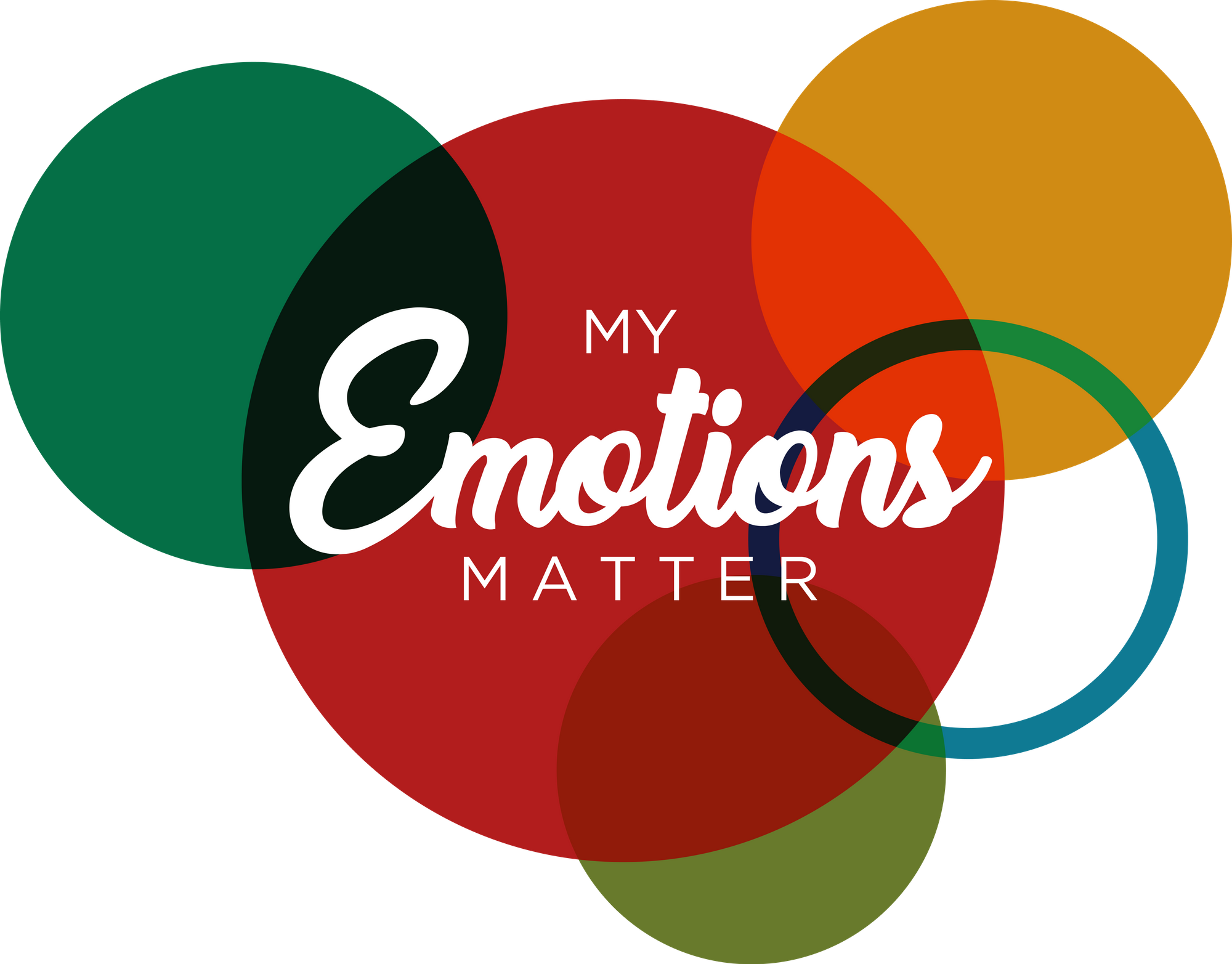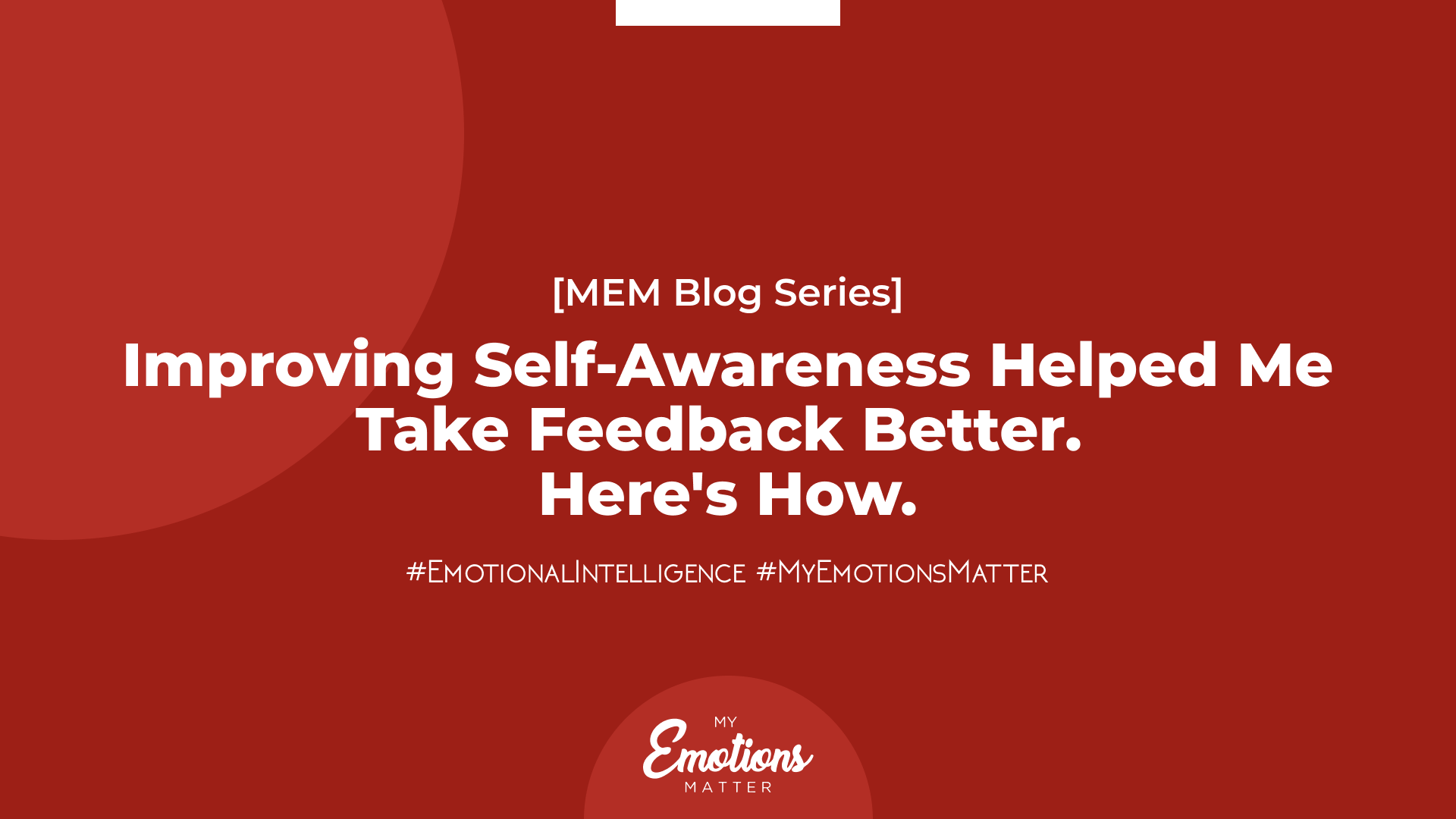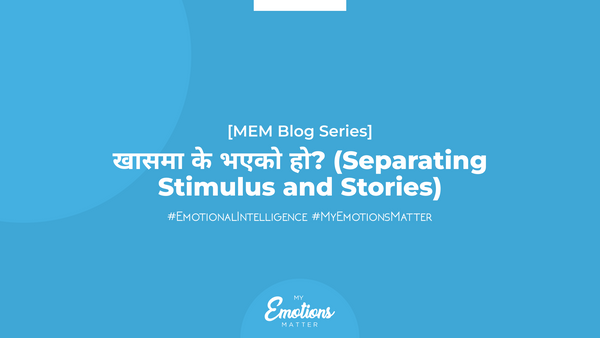Improving Self-Awareness Helped Me Take Feedback Better. Here's How.
Do you dread taking feedback? I know I have for the longest time, even from people who mean well to me. Thoughts like, “मलाई त यति पनि आउदैन,” “मैले जैले पनि काम बिगार्ने भएँ।” would repeatedly play in my head even though the inputs I received were most needed for my growth. It took me a long time to overcome this pattern because I went through inner conflict when receiving feedback.
As I look back, most of the remarks I received during school on my assignments or exam tests- either came in the form of praise or insult. There was no in-between. My actions either made me ज्ञानी बच्चा or a काम न लाग्ने मान्छे at home. In my relationships, when I met other people’s expectations, I became राम्रो, माया गर्ने, or, care गर्ने मान्छे. But, the moment I thought about myself, I got greeted with comments like, “तिमी त आफ्नो बारेमा मात्र सोच्छौ,” “तिमी त क्या एक्कल्काटे रहेछौ यार!”
Over the years, I strongly internalized the criticism and labeling from others as my internal voice. So much so that even when the people who wished well for me gave me any feedback- it became a reason for me to look down upon myself. Of course, it didn’t serve me but it took me a long time to realize this.
No one is to blame. My parents, teachers, friends, acquaintances, loved ones- they didn’t know there was a better way out, neither did I. They treated me the way others treated them. They considered normal, what they found normal around them. Sadly, I absorbed this black and white labeling from the people around me. So, even when no one would be around to label my actions as good or bad, I started doing so on my own without any external prescription.
Let's take an example. I once accepted a client's renewed proposal without first checking-in with my supervisor. The next day when I informed my supervisor about it, he made me aware of how my actions had led to a loss of revenue for the organization.
The moment I received that feedback, I had judgmental thoughts like, "मलाई केहि गर्न आउदैन!" "म त खत्तम रहेछु।" But eventually, I started looking for the deeper messages behind those judgments. I made efforts to transform them into feelings and needs.
How was I feeling?
Despite trying to help and contribute, my actions fueled a misunderstanding. I felt angry, hopeless, and sad.
What were the underlying messages behind my feelings?
The unpleasant feelings of anger, hopelessness, and sadness came from my unmet needs of being effective in what I do and remaining accountable towards my team.
It's easier to keep labeling, blaming, and criticizing when things go wrong. We either exert this blame outside or take it in. In my case, I blamed myself.
The good news is that self-awareness can help us look beyond the surface of judgments. In any situation, if I know how I am feeling and what my needs/expectations are, I can ask myself: What options do I have? It can help me think of choices that I can make to become a better version of myself.
So, what options did I have?
Since I wanted to be effective in what I do and remain accountable towards my team, I consulted with my supervisor and talked to the client. I informed the client about the problem and recommended a possible solution, which thankfully worked out eventually.
I questioned myself many times why I couldn’t take feedback constructively. Why did I perceive it as an attack? (It wasn't meant to be an attack on me). I continually reflected and found out that I lacked awareness about my deeper feelings, needs, and choices/actions that would help me take the feedback constructively and work on it.
Instead of bloating myself with pride when I did something well and ripping myself of my worth if I failed to do something, I started connecting with my feelings, needs, and actions. This practice helped me work on my relationship with myself and helped improve how I took feedback.




